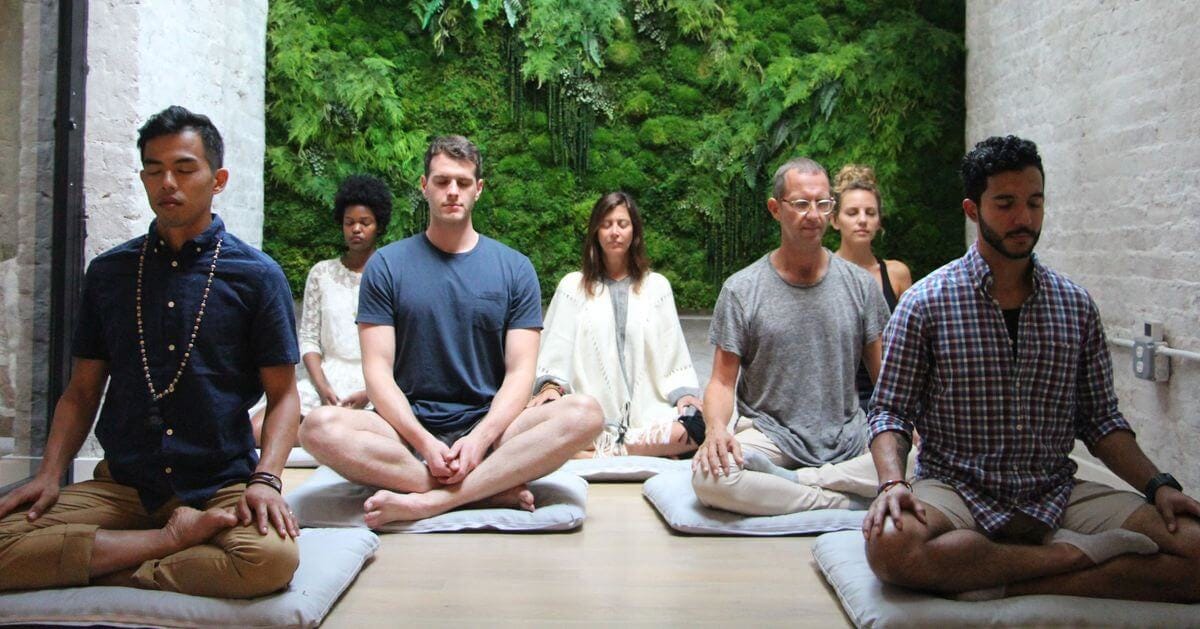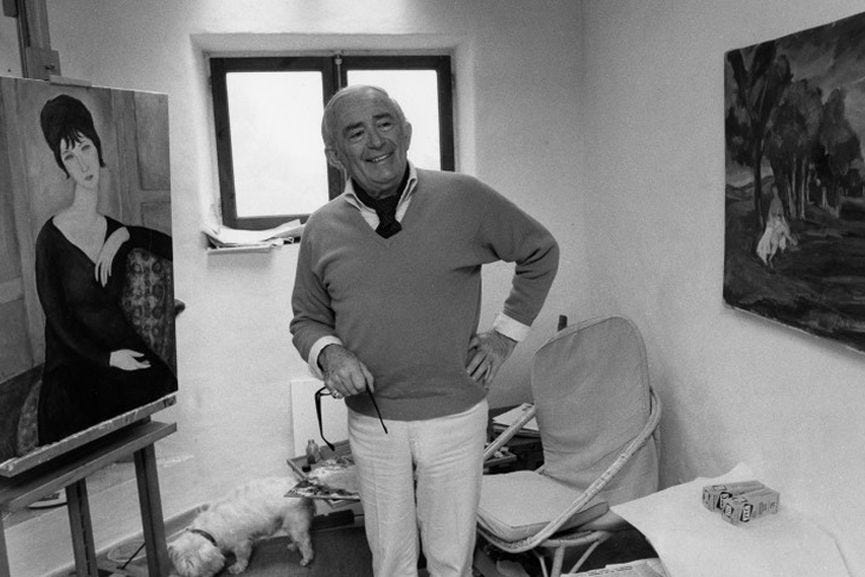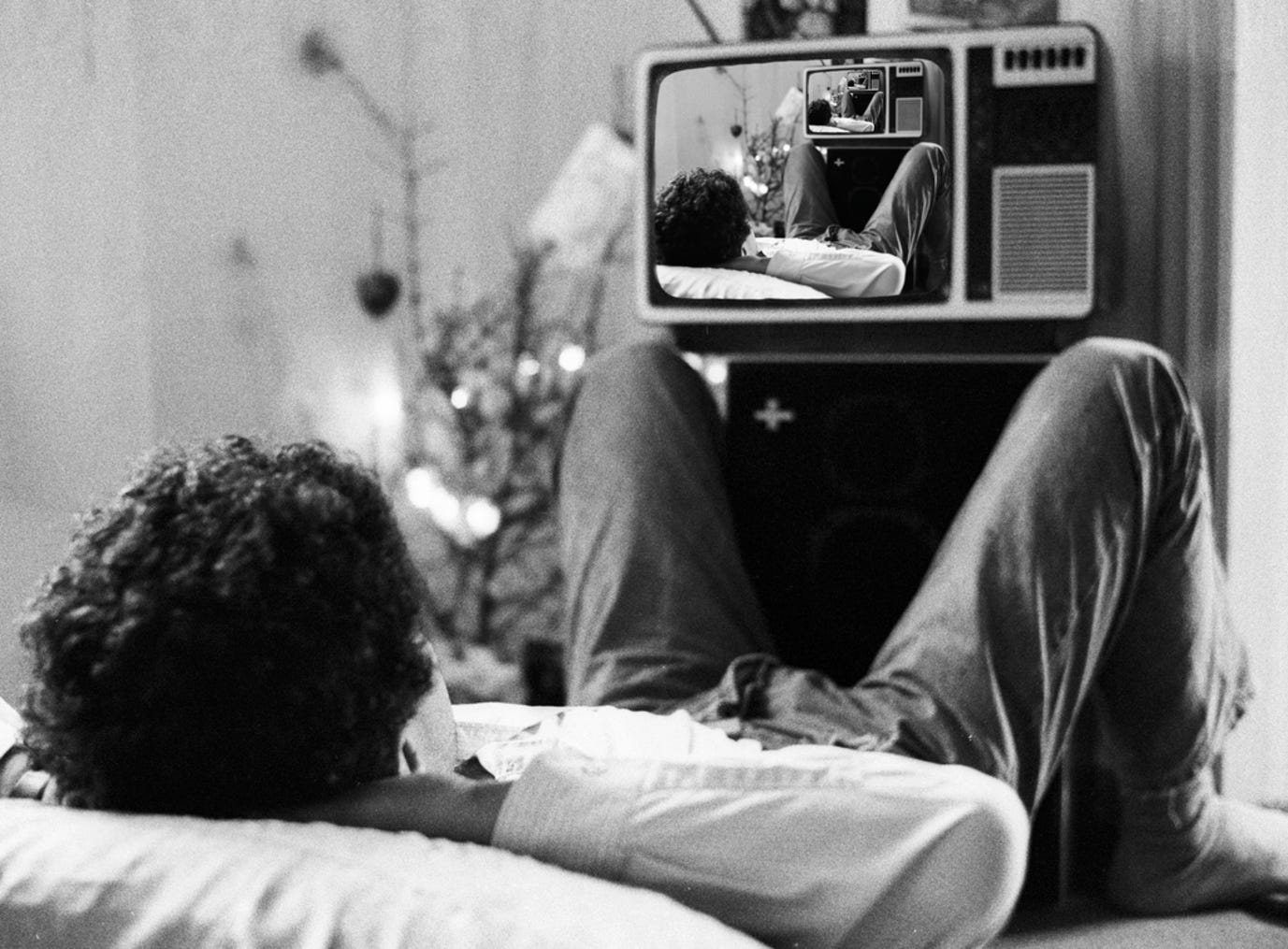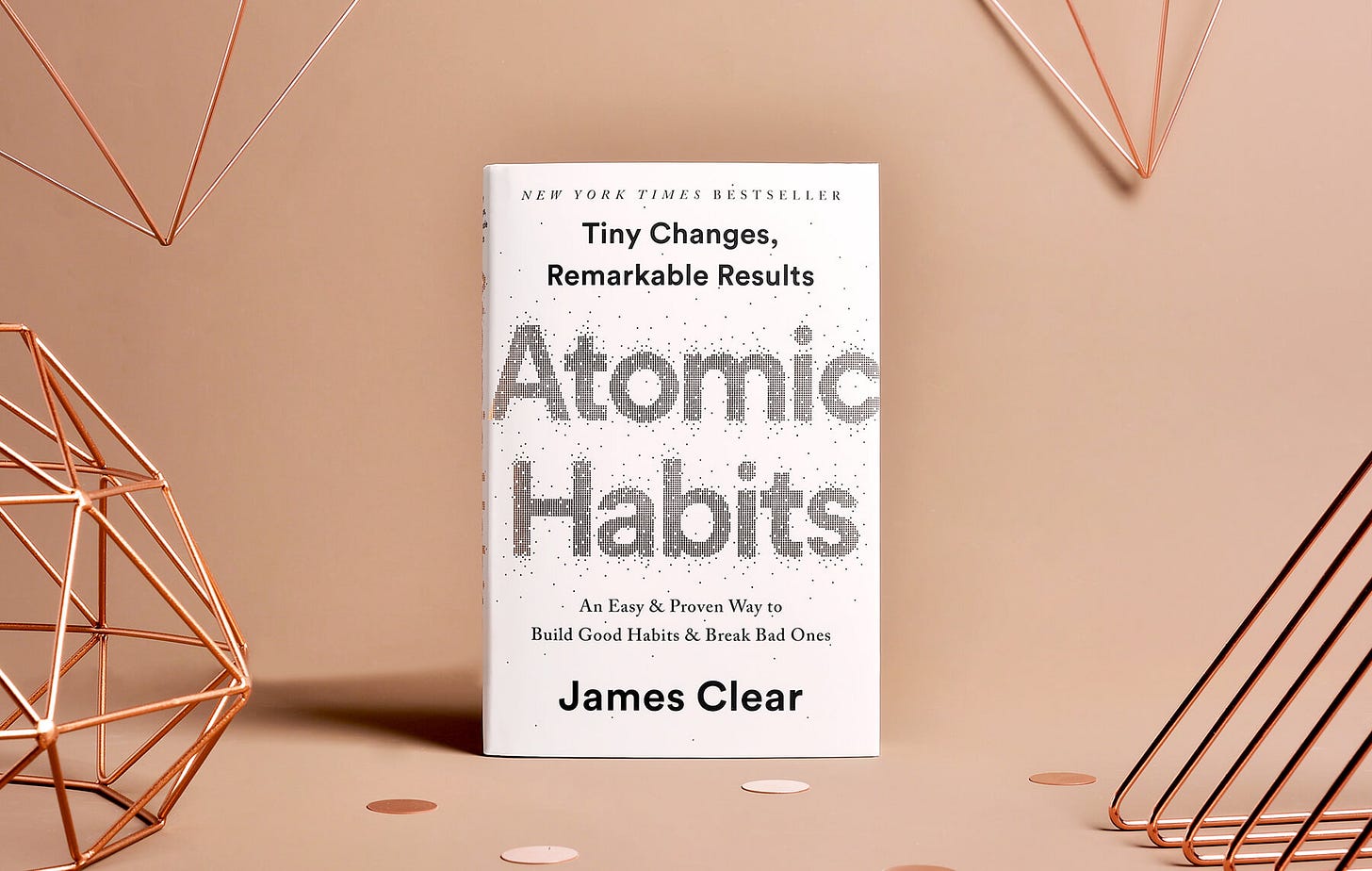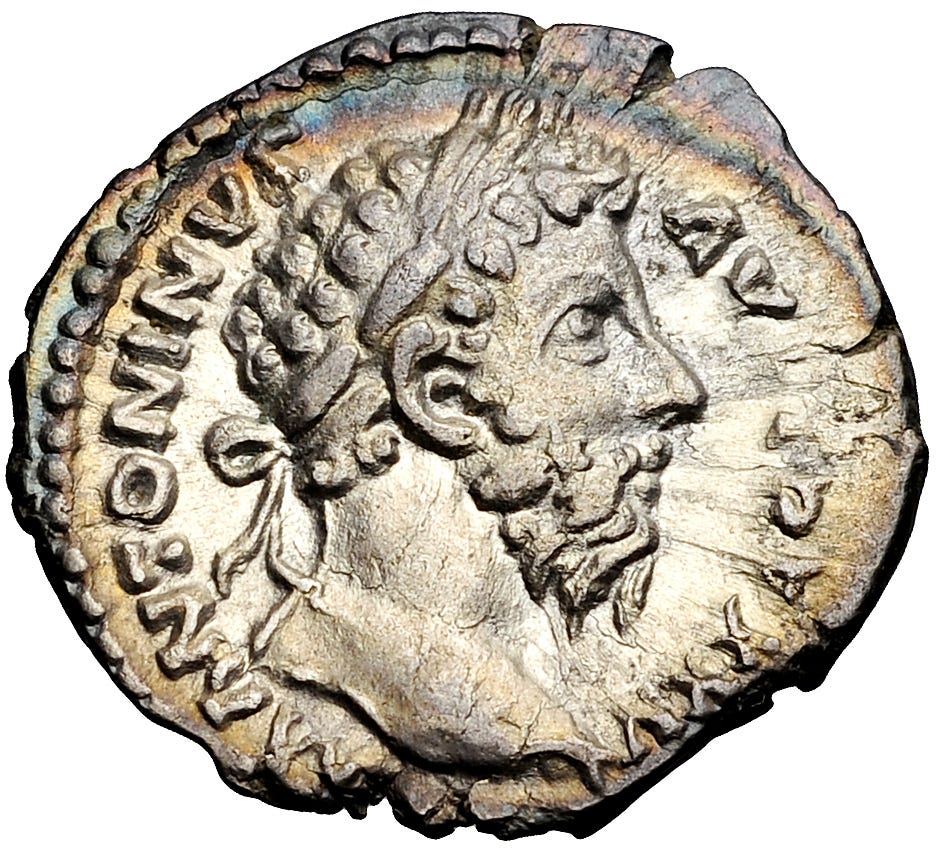Among the numberless benefits of the practice of meditation, there’s one that is surprisingly overlooked. I’m only recently starting to truly appreciate this principle, and it doesn’t just happen in meditation, but that’s when it’s most obvious.
And it’s a bit frustrating to acknowledge this idea, because it means that I’m going to have to act upon it when I notice it again. Especially since I’m publishing it.
Here’s the idea: the more resistance I feel towards doing something, the more I should do it.
To see why this idea is frustrating, imagine that you are walking towards the edge of a cliff. The wind is gusting sporadically and sharply, and the sun is in your eyes, and the path is slippery and icy, and you feel incredibly unstable and unsafe. Your body instinctively tenses up and tells you that you should stop going towards the cliff and instead turn around. Go back. U-turn. This is a dead end.
But then your mind helpfully reminds you that since you feel all this resistance, you should actually keep going. But that’s not what you want to do at all. You want to go back. But you know you have to. You know if you don’t proceed, you’re going to regret it. You’re going to feel disappointed in yourself.
I’m not suggesting that we all rush to high places and jump off them. But we are actually faced with similar experiences already, all the time, because that’s often how a scary decision presents itself. Perhaps the most illustrative example I can think of is a highly-charged interpersonal interaction. Imagine (if you’re single) approaching a pretty person from across the room and introducing yourself. Engaging in small talk. Trying to get their name and number. If you have a vivid imagination (or memory), then you know what I’m talking about. Does it not feel like walking off a cliff?
Or if you’re not single, consider a related situation: Imagine approaching a very important executive at your company (or a customer’s, or a competitor’s, or whatever). Imagine asking them for a job that you aren’t quite qualified for. Or asking them for a favor that you don’t quite deserve. Cliff-like, ain’t it? Sweaty palms. Collar suddenly too tight.
But the irony of these scenarios is that despite the incredible amount of resistance we feel in our bodies, we know in our minds that we should do it. We should approach the cliff, and yeet ourselves off it. Don’t look down, don’t turn back. Just send it.
Now these are extreme examples, but this feeling of resistance doesn’t always present this way. Sometimes it’s more subtle. We just don’t feel like doing it. Not right now. Not today. Maybe tomorrow. Maybe later. Ehhhhh….
Or maybe it just feels silly, like being asked to stand up in front of a group and sing a melody or do a little dance or tell a joke. “This is stupid” you say to yourself. I don’t want to do this chickenshit. This is for kids. This is embarrassing.
Instead of a cliff, the appropriate metaphor for this scenario is this: climbing up a mountain with a heavy backpack full of knicknacks that you have to deliver to a grumpy relative. Or worse, an in-law. We just don’t want to do it. It’s not scary or anything. It’s just so tedious and stupid and unnecessary and exhausting that we’d rather invent any number of excuses to get us out of it.
But the same principle applies here: the more resistance I feel, the more I really ought to do it. Because in the long run, I’ll feel much better about doing it than avoiding it. I’ll feel less guilt, receive less grief.
Daily meditation has been the perfect environment for me to practice this principle, to be reminded of its veracity. And knowing that it will be better in the long run helps me to face the fear or frustration of the resistance, and push through it.
It’s kind of funny how often it happens in meditation. It usually starts like this: I sigh, and roll my eyes, and say to myself, “well this is going to be a waste of time.”
But every time, once I begin the meditation, I realize a new aspect to that topic, something that helps me appreciate it even more, and it’s a reminder to me that the thing I thought I knew, I was actually very wrong about.
If this all seems abstract, let me provide recent example: the other morning, my meditation app revealed to me that the objective of the day’s session was to practice “Loving-Kindness.”
Boom, the resistance hits immediately (it’s amazing how fast). I think today’s topic of self-love is incredibly trite for a few reasons. It’s:
excessively common in our culture (which I criticized in a recent post)
something I already do too much (I know the root of most of my problems is selfishness)
not really helpful / what I need to practice today (I need to practice focus or mind-emptying or relaxation/not fidgeting)
But because I’ve already experienced this pattern where the resistance clues me into something I need to learn, something I should actually pursue and lean into, so then I decide to proceed and keep an open mind about it. Then the app asks me to practice “Loving-Kindness” on a neutral person. Which immediately implies to me that the next step (probably tomorrow) will be to practice it on someone I dislike. And I reflect that that is something which I could probably use. And as this line of thinking proceeds, I realize that somehow practicing even on strangers seems like something I need to do, in order to be less selfish.
So the app asks me to envision someone that I don’t know very well. Someone that I know what they look like, but don’t know them personally, don’t even know their name. So I imagine my next-door neighbor. I've met one of his roommates, but not him. The day prior, I had been sitting on the front porch drinking my coffee, and I saw him with his girlfriend. I know they have a van they are working on. They are making it into a little-camper van for weekend trips. That's all I know about him.
So the app asked me to wish him well, in whatever ways I think he could use it.
So I wished him three things:
That his project on the van would be successful and fulfilling.
That his plans to take trips in the van would be successful and fulfilling.
That his relationship with his girlfriend would flourish and be fulfilling.
But here is where the big revelations began. I realized that probably my neighbor and his girlfriend will be taking trips together in the van. And if those trips are successful, then it probably implies that their relationship will also flourish. So all I really needed to do was wish that the trips would be successful. And same thing is true if we go another step backward: If the project on the van is successful, then the plans to take trips in said van will probably be successful.
And then it hit me: All we really want in life is for our relationships to flourish.
Think about it.
In this specific example, the goal of all these little tasks on the van are to get it ready for trips. And the goal of all those trips are to have fun, especially with his girlfriend. And the goal of that is to have a meaningful, enjoyable, mutually beneficial relationship. But this premise holds true in more general examples too.
We fill our days with projects — with things to do. We have obligations (work, chores, family), and then we have our hobbies. But the end goal of all these activities is so that we can fulfill our plans and goals.
We do our work so that we can make money (or we do our schoolwork so we can get a job). We use this money to pay our bills so we can keep living. Likewise we do our chores so that we can maintain a relatively sanitary and sustainable lifestyle. And what’s the point of going on living?
Well we also use our money so we can support our hobbies, whatever they may be. Whatever we do for fun, in our free time. Our hobbies can include reading for edification, or art for expression, or exercise for health, or entertainment for pleasure. Now all this may seem a little selfish. But stay with me.
All of these values (leaving aside pleasure for now) point towards making us a better person. And why do we want to be better? So that we can show up in our relationships, whether friends, or family, or partners. So we can bless people around us. We don’t exist in a vacuum. Everyone we interact with, whether intentionally or accidentally, will be affected by us.
This is obviously true in the case of our children, but also in our friends, and our brothers and sisters, and our parents, and our lovers. But even strangers and people we will never even meet or see are influenced by us. And even more shockingly, in people that we haven’t met yet and can’t even imagine right now. When we meet those people in the future, we will be the sum of all the actions and thoughts we’ve had up until that time. So the preparation for that begins now.
And moreover, if we’re lucky, we don’t just work so we can earn money, but we also work because our work itself is meaningful. It supports some other kind of vision or value. We want to make the world a better place. But for whom? Ideally for the people close to us, but also those who are far away. So even that is for relationships.
But what about pleasure? What about unedifying and isolating activities like watching TV by ourselves, or playing video games, or eating poorly, or watching porn? How do these benefit our relationships?
The short answer is that they don’t.
In small doses, I could make the argument that harmless self-indulgence is actually really beneficial for maintaining our sanity, which again helps us show up in our relationships. Just as laughter is the best medicine, and watching comedy movies or standup or joking with friends make us laugh, and that makes us happy, and that makes us better around others, likewise I think a small amount of solo self-satiation is ok.
But in large doses, it’s clearly ineffective, unhelpful, and even counter-productive. Which just goes to show that there are important decisions to be made with how we spend our time. I said earlier that “All we really want in life is for our relationships to flourish.” But perhaps I should say, “All we truly want in life is for our relationships to flourish.” Minor change, significant difference in meaning.
Sometimes what we think we want is not what we really want. Just ask Saint Paul:
I do not understand what I do. For what I want to do I do not do, but what I hate I do. —Romans 7:15
I’ve written before about this conflict of interest between different versions of ourselves. And this also goes back to what I said earlier, in the beginning of the essay: “the more resistance I feel about something, the more I should do it.”
In short, there are parts of us that are weak and childish and cowardly and rebellious, and parts that are strong and mature and valiant and dutiful.
So how do we support the good part and do away with the bad?
Perhaps one of the best books I’ve read about personal change is Atomic Habits by James Clear. In it, he suggests that habits are actually the fundamental molecular structures of our personalities. And this idea isn’t new, in fact everyone from Stephen Covey to Aristotle has made this point1.
What is new is that Clear suggests that although the impetus of any lasting change is habits, the motivation underlying those habits comes from a recognition of our identity. In other words, who do want to be?
For example, if you want to start exercising more and eating better, you will need to embed habits in your life that support both of those activities. But how do you find the willpower to initiate those habits, and to maintain them when the going gets tough? You have to envision the ideal version of yourself, the person who is already healthy. When you come across the opportunity to eat a hot dog instead of a salad, you ask yourself, “what would the healthy and fit version of myself do?” Same thing when you are tired and don’t feel like putting on those running shoes.
But the point I want to make here is that this envisioned idealized version of ourselves is only relevant in the context of others., in the context of our relationships. Who cares if we are healthier, skinnier, stronger, faster? Is it just for our own benefit? Maybe a little bit, as it makes all our other activities easier. But then again, why do we do those activities? It goes back to the same thing—relationships.
And if that’s not convincing, let’s take a look at what Stephen Covey had to say. He suggested that the fundamental force underneath all our actions (which is also the result of those actions) is our Character. Our integrity. Our deep and core and authentic personhood.
But what does Character even mean, if not relative to others? How can we be brave if there is no one to be brave for? How can we be truthful if we have no one to tell the truth to? How can we be disciplined if there is no one to witness the results of that discipline?
It’s been said that “Integrity is doing the right thing, even when no one else is around.” And that may be true, but at some point that action will ripple out and affect someone. Or if not that specific action, then our integrity will eventually affect someone else.
So what’s the point of all this?
Thinking through these things reminds me that we cans take a step back and look at all our goals and plans and obligations and hobbies and chores. What are they pointing towards? Or rather, whom are they pointing towards? Ultimately, which relationships are they affecting, and how? That might change our focus going forward.
And if we want to make a change in our lives, if we want to promote the good version of ourselves and not the bad version, we can take a look at our habits, and the identity beneath those, and the people who are influenced by that identity. That might encourage us to initiate and maintain a change.
And lastly, if we feel resistance at any time, then maybe it’s also a good idea to press in. To go towards the cliff, to hike up the mountain.
So the title of this essay is “Who are you trying to impress?” Which is usually said in a derogatory manner, implying that no one really cares what you do, and that we should find the motivation within ourselves, rather than looking to other people for validation. But if you follow the logic of this argument, I think that trying to impress other people is probably the most important thing. Not in the sense of looking good and making them admire you, but the sense of leaving a mark. An “indelible impression.” A lasting impact.
“We are what we repeatedly do. Excellence, then, is not an act, but a habit.” —Will Durant, summarizing Aristotle
“There is no real excellence in all this world which can be separated from right living.” —David Starr Jordan
“Sow a thought, reap an action. Sow an action, reap a habit. Sow a habit, reap a character. Sow a character, reap a destiny.” —Stephen Covey




